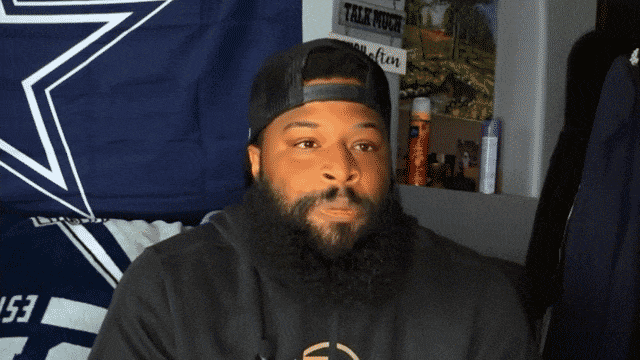“Texas Tough” McKay Law
Texas Rideshare Accident Lawyer
If you’ve been injured in a rideshare accident in Texas, don’t wait to get the help you need. Accidents involving rideshare vehicles can be complex, with multiple parties and insurance policies involved. That’s where McKay Law comes in. Our experienced team understands the challenges of these cases and is ready to provide the expertise, guidance, and support you deserve. We’ll fight to ensure your rights are protected and help you pursue the compensation you’re entitled to for medical bills, lost wages, and pain and suffering. Take the first step toward justice and let us handle the rest.
NO FEES UNLESS WE WIN!
We only get paid when you get paid.
Receive Immediate Medical Care
Get the medical attention you need with no out-of-pocket cost in most cases.
24/7 Access To Us
We are here for you 24/7 so you can focus on healing.
Client Satisfaction
McKay Law has a reputation to be proud of with 300+ 5 star Google Reviews.
Texas Rideshare Accident Lawyer | McKay Law
When rideshare accidents happen, they can leave victims feeling overwhelmed, injured, and unsure of what steps to take next. These accidents often involve unique challenges, such as determining liability between the rideshare driver, the company, or other parties involved in the crash.
At McKay Law, we understand the complexities of rideshare accident cases and the stress they can cause. That’s why we are dedicated to fighting for the justice and compensation you deserve, whether it’s covering medical bills, lost wages, or pain and suffering. With years of experience handling rideshare accident claims across Texas, our knowledgeable and compassionate team is ready to guide you through the legal process and stand by your side every step of the way.
You don’t have to face this alone—let us help you get the resolution you need to move forward..
Understanding Your Rideshare Accident Claim
Rideshare accidents present unique challenges because they involve companies like Uber and Lyft, in addition to the drivers and their insurers. These ridesharing car accidents often require skilled legal representation to navigate the complexities of pursuing claims against multiple parties. If you’ve been injured in a rideshare accident, our experienced team is here to help.
We are well-versed in Texas rideshare laws and understand the intricate policies that govern these companies. Here’s how we can assist you:
- Conduct a thorough investigation into the cause of the accident, gathering evidence such as eyewitness accounts, police reports, and rideshare app data.
- Determine liability by identifying all parties involved, whether it’s the rideshare company, the driver, or a third party.
- Handle all communications and negotiations with insurance companies to ensure you are not pressured into accepting a low settlement offer.
- Advocate fiercely for your rights both in and out of court, working toward a resolution that provides the compensation you deserve for medical expenses, lost wages, and pain and suffering.
Your case is important to us, and we are committed to protecting your interests every step of the way. Let us handle the legal complexities so you can focus on recovery
Lindsey McKay Takes Texas Rideshare Accident Cases Seriously
When you’re involved in a rideshare accident, life turns upside down before you even have time to process what’s happened. The stress of injuries, mounting medical bills, and dealing with insurance companies can feel overwhelming. That’s where Lindsey McKay steps in. A highly dedicated Texas rideshare accident attorney, Lindsey McKay combines legal expertise, compassion, and a relentless commitment to justice to help her clients rebuild their lives.
Why Rideshare Accidents Require a Specialist
Rideshare accidents are not the same as regular car accidents. Platforms like Uber and Lyft add a layer of complexity to these cases. Determining liability can be challenging because multiple parties may be involved—drivers, rideshare companies, and even other motorists. Furthermore, uncovering the correct insurance coverage and enforcing accountability often requires in-depth legal knowledge and persistence.
Lindsey McKay has mastered these complexities. She’s built her career on understanding the multifaceted legal issues surrounding rideshare accidents in Texas. Her dedication ensures that no stone goes unturned when pursuing justice for her clients.
A Champion for Justice
At the heart of Lindsey’s practice is her devotion to achieving fair outcomes for those she represents. Every case is treated with the seriousness and urgency it deserves—because for Lindsey, it’s personal. She understands that behind every rideshare accident case is a human being who is likely dealing with physical pain, emotional stress, and significant financial strain.
Her approach is anything but cookie-cutter. Lindsey takes the time to discuss each client’s unique circumstances in detail, crafting legal strategies designed for the best possible outcome. Whether negotiating with insurers or litigating in court, she fights tirelessly to secure the compensation her clients need for medical expenses, lost income, pain and suffering, and other damages.
Experience That Makes a Real Difference
Navigating Texas’s legal system can feel like walking a tightrope, especially for those unfamiliar with its nuances. Lindsey McKay has spent years honing her understanding of state laws and regulations, particularly those that govern rideshare accident cases.
Her extensive knowledge allows her to anticipate challenges and often preempt them. For example, Texas’s comparative fault rule, under which compensation may be reduced based on a victim’s percentage of fault, is a common hurdle she adeptly navigates. With Lindsey in your corner, you have an advocate who knows the law inside out and will work strategically to protect your rights.
Compassion Through Challenging Times
While Lindsey’s legal prowess sets her apart, her compassion is what clients often remember most. From the moment you connect with Lindsey, you’ll notice her ability to listen with genuine empathy. She understands how life-altering an accident can be and treats each client with the respect and dignity they deserve.
Her team works hard to shoulder the burden of legal challenges so clients can focus on their recovery. Lindsey believes in maintaining open communication, explaining legal terms in plain language, and updating clients at every stage of the process. It’s this human touch that transforms her role from just being a lawyer to becoming a steady source of support during uncertain times.
Your Partner in the Fight for Fairness
Being involved in a rideshare accident can make you feel powerless. Insurance companies often use delay tactics, deny liability, or attempt to minimize payouts, leaving vulnerable victims without the resources they need to recover fully. Lindsey McKay refuses to allow these unfair practices.
She stands up to powerful corporations and their legal teams with the confidence of someone who has successfully done it time and again. Lindsey’s reputation as a determined and effective attorney ensures that your case will be taken seriously from the very start.
Consultation Without Commitment
If you’ve been injured in a rideshare accident in Texas, don’t settle for less than you deserve. Lindsey McKay is ready to review your case, answer your questions, and guide you toward the best legal path forward.
Schedule a free consultation today and take the first step in regaining control of your future. Lindsey fights for her clients as if they were her own family, and she’s ready to fight for you too.
What Are The Most Common Types of Rideshare Crash Injuries In Texas?
Rideshare crash injuries in Texas, like in other places, can vary depending on the severity of the accident, the position of the passengers, and other factors. However, some of the most common types of injuries associated with rideshare accidents include:
- Whiplash – A neck injury caused by sudden back-and-forth movement.
- Broken or Fractured Bones – Common in high-impact collisions.
- Head Injuries – Including concussions and traumatic brain injuries.
- Spinal Cord Injuries – Leading to potential paralysis or chronic pain.
- Internal Bleeding – Often from blunt force trauma.
- Cuts and Scrapes – From shattered glass or debris.
- Emotional Injuries – Such as PTSD or anxiety following an accident
If you or someone you know has been involved in a rideshare accident in Texas, it’s important to seek medical attention immediately, even if injuries seem minor at first. Additionally, consulting with a legal professional can help navigate insurance claims and liability issues, as rideshare accidents often involve complex legal considerations.
Reckless Texas Rideshare Drivers Cause Accidents!
The convenience of ridesharing has revolutionized how Texans get around. Services like Uber and Lyft provide affordable, on-demand transportation at the tap of a screen. But beneath the surface of this innovation lies an unsettling issue—reckless driving by some rideshare drivers is putting passengers, pedestrians, and other drivers at risk.
We will unpack the causes of reckless behavior among Texas rideshare drivers, examine its serious consequences, and share practical steps passengers can take to stay safe.
Common driver-related errors that lead to dangerous and sometimes fatal rideshare accidents include:
Distracted Driving
Distracted driving is a significant concern in the rideshare industry, as it can lead to accidents that jeopardize the safety of passengers, drivers, and others on the road. Here’s a breakdown of how distracted driving can contribute to rideshare accidents:
Types of Distractions
- Mobile Devices: Rideshare drivers often rely on apps for navigation, ride requests, and communication. Constantly checking or interacting with their phones can divert their attention from the road.
- Passenger Interaction: Engaging in conversations or addressing passenger needs (e.g., adjusting music, answering questions) can take the driver’s focus off driving.
- External Distractions: Looking at billboards, other vehicles, or roadside events can also lead to lapses in attention.
- Multitasking: Eating, drinking, or adjusting vehicle controls while driving can further increase the risk of accidents.
Drowsy Driving
Drowsy driving is a significant and often overlooked factor in rideshare accidents. When rideshare drivers work long hours or drive during late-night shifts, they may experience fatigue, which impairs their ability to focus, react quickly, and make sound decisions on the road. Here’s a breakdown of how drowsy driving contributes to rideshare accidents:
1. Impaired Reaction Time
- Fatigue slows down a driver’s reaction time, making it harder to respond to sudden changes, such as a pedestrian crossing or a car braking unexpectedly.
2. Decreased Awareness
- Drowsy drivers may miss critical cues, like traffic signals, road signs, or other vehicles, increasing the likelihood of an accident.
3. Microsleeps
- A driver experiencing extreme fatigue may have brief, involuntary lapses in attention, known as microsleeps, which can last a few seconds. Even a momentary lapse can lead to a collision.
4. Poor Decision-Making
- Fatigue affects cognitive functions, leading to poor judgment, such as speeding, tailgating, or failing to yield.
5. Extended Hours Behind the Wheel
- Rideshare drivers often work long shifts to maximize earnings, which can lead to exhaustion. The pressure to accept more rides and meet quotas exacerbates the problem.
6. Night Shifts and Circadian Rhythms
- Many rideshare drivers operate during late-night hours when the body’s natural circadian rhythm promotes sleep, increasing the risk of drowsiness.
7. Lack of Rest Breaks
- Drivers may skip breaks to complete more rides, further contributing to fatigue.
Speeding
Speeding is a significant factor in many traffic accidents, including those involving rideshare vehicles. Here’s how speeding contributes to rideshare accidents:
Reduced Reaction Time: When a driver is speeding, they have less time to react to sudden changes in traffic, pedestrians, or unexpected obstacles. This is especially critical in urban areas where rideshare vehicles often operate.
Increased Stopping Distance: The faster a vehicle is traveling, the longer it takes to come to a complete stop. This can lead to rear-end collisions or failure to stop in time for traffic signals or crosswalks.
Loss of Vehicle Control: High speeds make it harder to maintain control of the vehicle, especially during sharp turns, in adverse weather conditions, or on poorly maintained roads.
Severity of Accidents: Speeding not only increases the likelihood of an accident but also amplifies the severity of the crash. Higher speeds result in greater impact forces, leading to more serious injuries or fatalities.
Pressure to Meet Deadlines: Rideshare drivers may feel pressured to complete trips quickly to maximize earnings or meet customer expectations, which can lead to speeding.
Distracted Driving at High Speeds: Many rideshare drivers rely on navigation apps, which can be distracting. When combined with speeding, this creates a dangerous situation where the driver may not be fully aware of their surroundings.
Legal and Financial Consequences: Speeding-related accidents can lead to legal issues for the driver and the rideshare company, as well as increased insurance costs and potential lawsuits.
Addressing speeding as a cause of rideshare accidents requires a combination of driver education, enforcement of speed limits, and technology solutions like in-app reminders or speed monitoring systems.
Driving Under the Influence
Driving under the influence (DUI) is a significant and preventable cause of accidents, including those involving rideshare vehicles. When a rideshare driver operates a vehicle under the influence of alcohol or drugs, it compromises their ability to make sound decisions, react quickly, and maintain control of the vehicle. This not only endangers the passengers in the rideshare but also other road users, pedestrians, and property.
Key Points:
- Impaired Judgment and Reaction Time: Alcohol and drugs impair cognitive functions, slowing reaction times and reducing the ability to make safe driving decisions.
- Legal and Financial Consequences: DUI is a criminal offense, and rideshare companies often have strict policies against it. Drivers caught under the influence may face license suspension, fines, legal action, and permanent deactivation from the platform.
- Passenger Safety: Passengers trust rideshare services for safe transportation. A DUI incident violates that trust and can lead to serious injuries or fatalities.
- Company Liability: Rideshare companies may face lawsuits or reputational damage if a driver under their platform causes an accident while intoxicated.
- Preventative Measures: Rideshare companies often conduct background checks, monitor driver behavior, and encourage passengers to report suspicious activity to mitigate the risk of DUI incidents.
Inadequate Vehicle Maintenance
Inadequate vehicle maintenance can be a significant factor in rideshare accidents, as it directly impacts the safety and reliability of the vehicle. Here are some key points to consider:
1. Common Maintenance Issues Leading to Accidents
- Brake Failures: Worn-out brake pads or malfunctioning brake systems can lead to delayed stopping times, increasing the risk of collisions.
- Tire Problems: Bald or underinflated tires reduce traction, especially in adverse weather conditions, leading to skidding or blowouts.
- Engine or Transmission Issues: Sudden engine stalls or transmission failures can cause the vehicle to stop unexpectedly, creating hazards for other drivers.
- Steering and Suspension Problems: Faulty steering or suspension systems can make it difficult to control the vehicle, especially at high speeds or on uneven roads.
- Lighting and Visibility: Broken headlights, taillights, or windshield wipers can impair visibility, making it harder for the driver to see or be seen by others.
2. Responsibility in Rideshare Context
- Driver Responsibility: Rideshare drivers are typically responsible for maintaining their vehicles to ensure they meet safety standards. Neglecting routine maintenance can make them liable in the event of an accident.
- Rideshare Company Oversight: Some rideshare companies require regular vehicle inspections, but enforcement can vary. If a company fails to ensure compliance, it may share liability.
3. Preventative Measures
- Regular Inspections: Drivers should conduct routine checks on brakes, tires, lights, and fluid levels to catch issues early.
- Scheduled Maintenance: Following the manufacturer’s recommended maintenance schedule can prevent mechanical failures.
- Pre-Trip Checks: A quick inspection before starting a shift can help identify immediate concerns, such as low tire pressure or malfunctioning lights.
4. Legal and Financial Implications
- Liability in Accidents: If inadequate maintenance is proven to be the cause of an accident, the driver or rideshare company may face legal and financial consequences.
- Insurance Complications: Insurance claims may be denied if negligence in vehicle maintenance is determined to be a contributing factor.
5. Impact on Public Safety
- Poorly maintained rideshare vehicles not only endanger passengers but also pose risks to other road users, including pedestrians and cyclists.
By prioritizing vehicle maintenance, rideshare drivers and companies can significantly reduce the risk of accidents, ensuring a safer experience for everyone on the road.
The Texas Tough Difference
See why so many others choose McKay Law, PLLC
With over 300 five-star reviews, McKay Law, your local Personal Injury Law Firm has earned the trust and gratitude of our clients. Every case we handle is unique, and every client’s story matters. Don’t just take our word for it—hear directly from our clients about their experiences and why they confidently recommend us to others.
Rideshare Accident FAQs
Liability in rideshare accidents can vary depending on who caused the accident. The at-fault driver, whether it’s the rideshare driver or another party, is generally held responsible. Liability may also involve the rideshare company if specific conditions are met.
Most rideshare companies provide insurance coverage, but it usually depends on the driver’s status at the time of the accident (e.g., active ride vs. no passengers). It’s important to check specific policy details for comprehensive coverage information.
First, ensure everyone’s safety and call emergency services if needed. Then, take steps such as documenting the scene, gathering contact details from all parties, and reporting the incident to the rideshare company.
Yes, as a passenger, you can typically file a personal injury claim against the at-fault party. This could be the rideshare driver, another driver, or even the rideshare company’s insurance in some situations.
Gather the names, contact details, and insurance information of the rideshare driver and any other drivers involved. Also, document the accident scene with photos and keep a record of police reports or medical evaluations.
Rideshare drivers are usually required to have personal auto insurance, and most rideshare platforms also provide supplemental insurance during active rides. However, the specifics can vary by company and location.
Suing a rideshare company directly is typically difficult due to drivers being classified as independent contractors. However, there are exceptions, such as negligence in driver background checks or app functionality.
The key difference lies in the involvement of a commercial rideshare service. This adds insurance complexities, including the potential coverage from the rideshare company, and may change how claims are handled.
The time frame to file a claim, known as the statute of limitations, depends on the state where the accident occurred. It’s important to act quickly to ensure you don’t miss any deadlines.
While it’s not always necessary, a lawyer can help you understand your rights, negotiate insurance claims, and represent you if the case goes to court. This is particularly useful if liability or compensation disputes arise.






